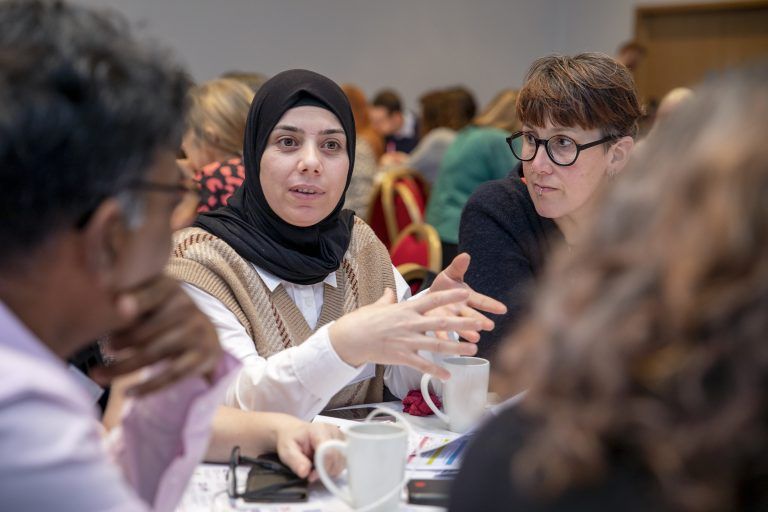The Welcoming ‘3Ds’ project aimed to alleviate the many discriminations experienced by New Scots Refugees in Edinburgh. We aimed to do this by providing holistic and comprehensive classes that help participants employability, language support, social bonds and connections and personal development.
The Welcoming ‘3Ds Project’ (Digital Diversity and Development)


Our primary aimed to help refugees integrate both digitally and culturally and help them widen their opportunities when seeking employment, interacting with their neighbours and the wider society.
Key Information
Geographical reach
Edinburgh
Dates
01/10/2021 – 31/10/2022
Target Groups
Older people, socio-economic disadvantage, Refugees
Project Type
Supporting innovation
Background
Scotland has offered a warm welcome to New Scots since the 19th century. However, many New Scots need support to build positive lives in new places. New Scots Refugees arrive in Scotland with many skills, talents and experiences to share. However, some can face significant barriers to achieving their potential, making them vulnerable to poverty, social isolation and discrimination.
Finding employment that matches their skills and qualifications is one of the significant challenges for New Scots. Problems with recognition of qualifications, employer attitudes and language also hold them back.
Involvement of New Scots in project
As this was a course, refugees signed up to and committed themselves for the duration and were thus constantly involved in the delivery of the project. They engaged with their homework to the best of their ability. As an illustration, Practice projects were worked on and created by participants. Good examples of these projects were demonstrated by the authors of the practice projects, to inspire the rest of the group.
Impact
We are proud that the original aims of the project brought about the changes we expected it to. All the participants who completed the course are now imbued with far more practical experience in using office applications which can be transferred to their everyday lives. They now have increased confidence to deal digitally with online matters, such as universal credit, writing emails, looking after their business, filling in forms, applying for jobs, research and much more.
The most significant changes have come from those who had the least IT experience or from a background of minimal education. A number of the students had never before engaged with such a demanding course and although it may have taken them more time, and indeed more support, their confidence and self-esteem grew throughout the duration of the course leading to eureka moments and the belief that; “I can do that.”

Challenges encountered
Despite the obvious benefits of online work this also presented a challenge in that the tutor was not able to point to the screen when explaining how to use a particular feature of the software; or an option on a given menu; and keys or combination of keys on the keyboard. Some students had never used a computer keyboard prior to the joining this course.
Reflections
If we were to teach this course again, we would introduce an element of hybrid teaching where every third or fourth class would be held in a classroom. This would facilitate the tutor being better able to teach the mechanics of digital learning rather than holding time consuming 1:1 sessions online to help individual students.
We feel that other organisations whose service users do not speak English in the majority to a high enough level, should not hesitate in allowing New Scots to take part in relevant projects. This would also apply to other disciplines such as joinery, plumbing, motor vehicle maintenance and repair and other vocational training areas, which could be taught with the help of an interpreter.

